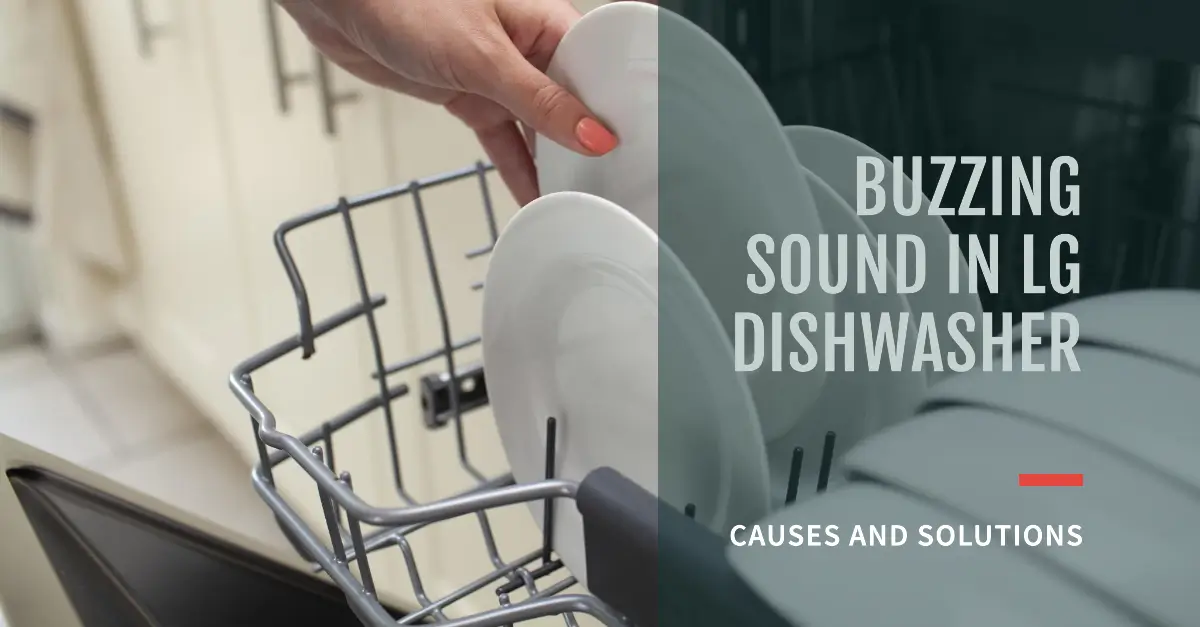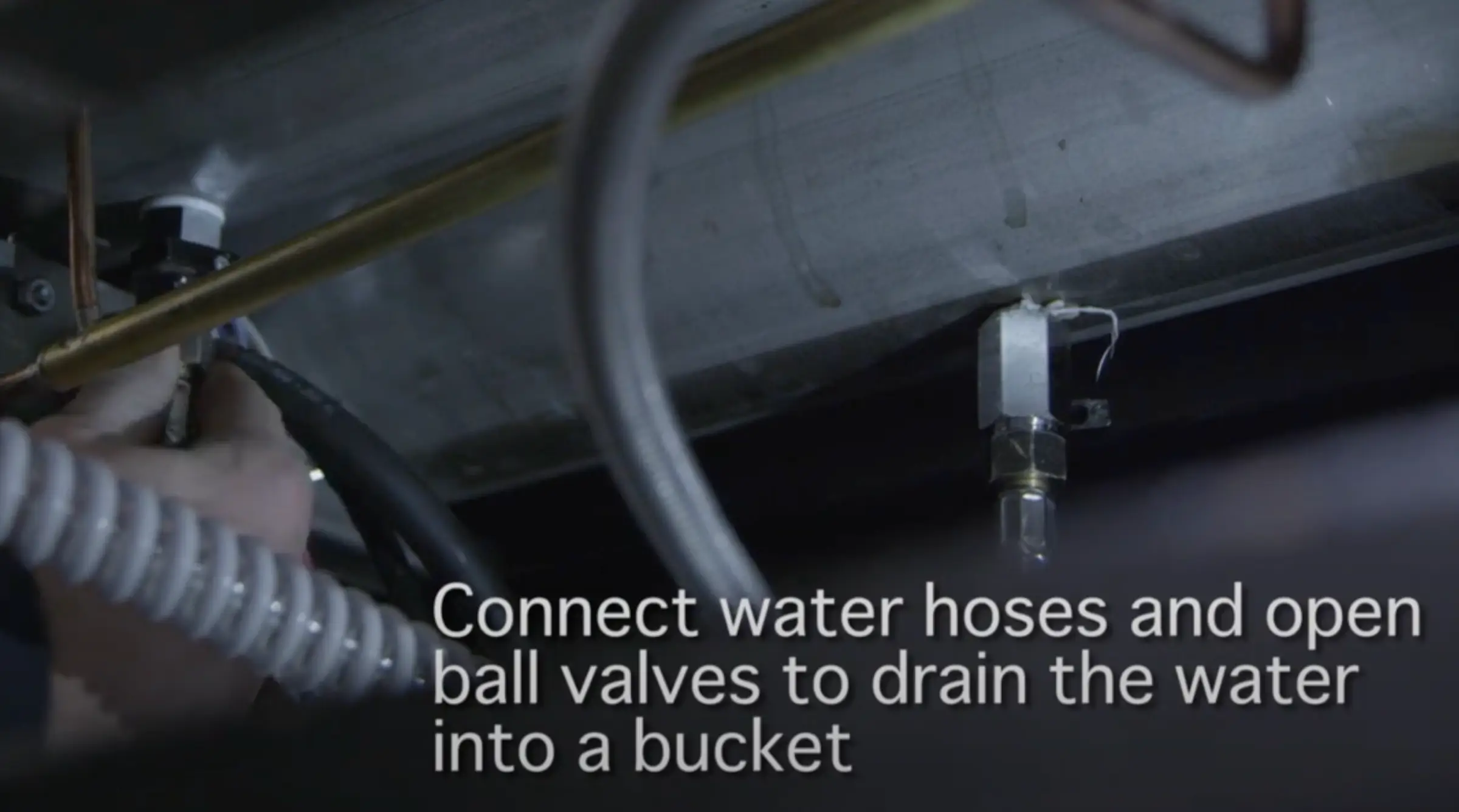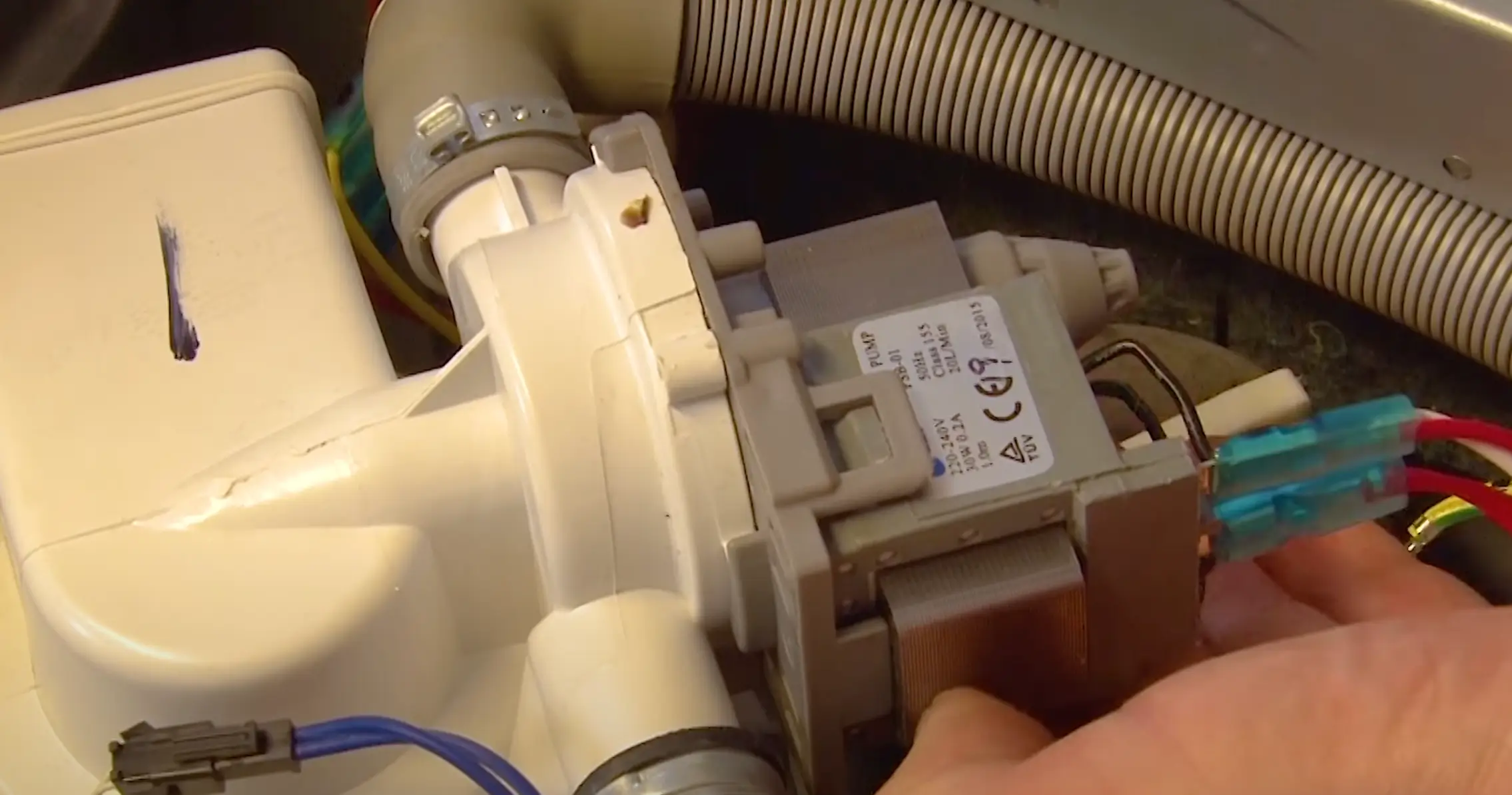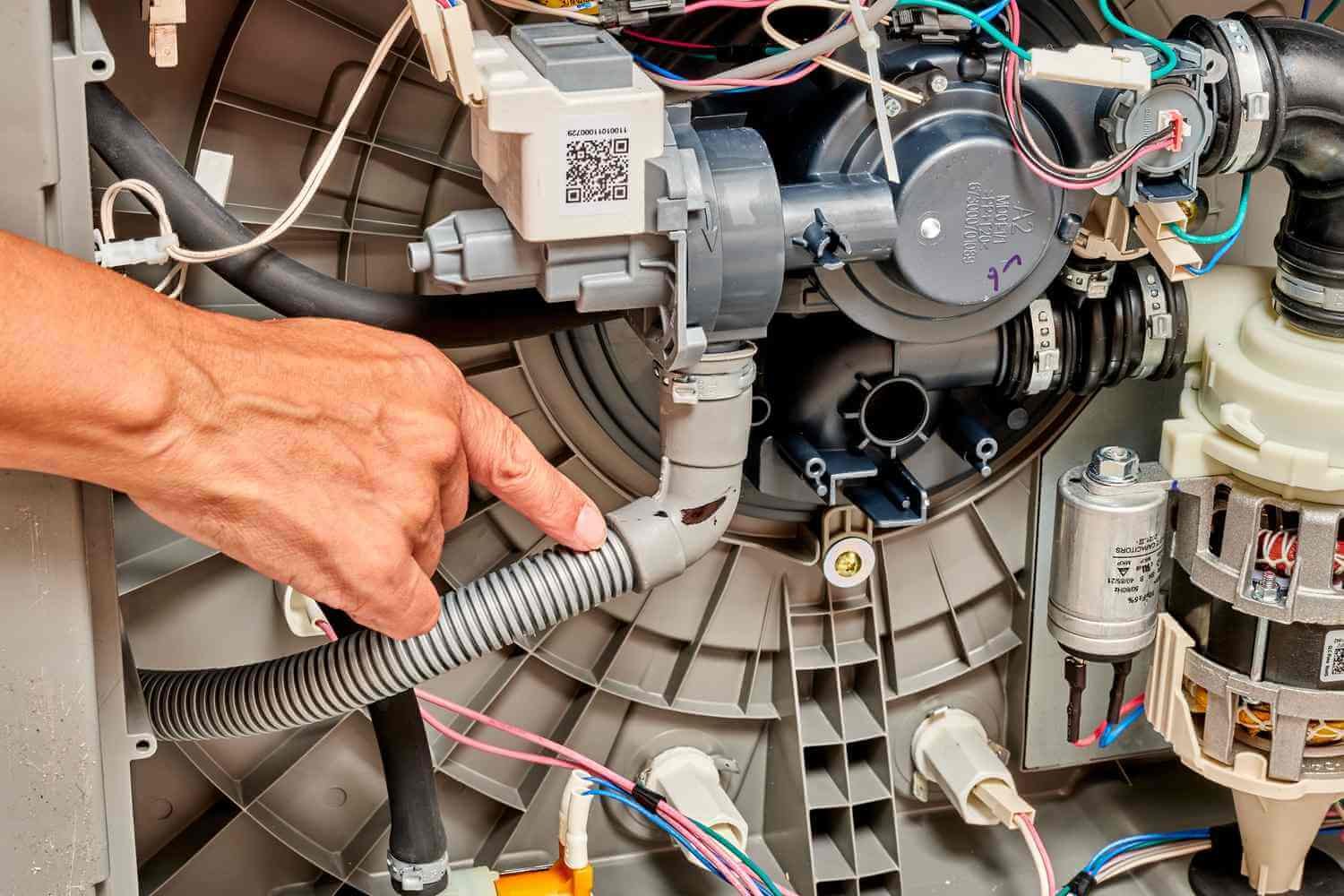Notice your LG dishwasher’s decided to join the band with a buzzing noise? Yep, it’s not the newest member you were hoping for.
When your beloved appliance starts making more noise than a roomful of chatty relatives during a wash cycle, it’s a sign your dishwasher is loud.
From a grumpy circulation pump, a clogged drain acting up, to the impeller throwing a tantrum or even a bearing deciding to grind away, troubleshooting this symphony of sounds can feel like a detective game.
Let’s dive into what makes your washer belt out a grinding noise when it should be peacefully cleaning your dishes, like when an LG dishwasher is making noise.
Key Takeaways
- Common Causes: Loose parts, motor issues, clogged inlet valve, drain pump problems.
- Troubleshooting Steps: Check for loose items, inspect the water inlet valve, examine the drain pump, and clean the filter.
- Preventive Measures: Properly load dishes, maintain clean components, and regularly inspect parts.
- Fixing the Noise: Rearrange dishes, clear blockages, and replace faulty components.
What Causes a Buzzing Sound in an LG Dishwasher?

Loose Parts
- Dishwasher Rack: Sometimes the rack isn’t snug and starts vibrating. It’s an easy fix—just make sure it’s in place.
- Spray Arms: If these are loose or not attached right, they can cause noise too. Check and tighten them.
Motor Issues
- Motor Bearings: Worn-out bearings can buzz as they try to turn. I’ve had this happen and had to replace the bearings.
- Motor Mounts: If the mounts are loose, the motor vibrates too much. Tightening the mounts can help.
Water Inlet Valve Could Be a Cause If Your Dishwasher Is Loud
- Blockage: Debris or minerals can clog the valve, causing a buzzing noise. Cleaning the valve often solves this.
- Faulty Valve: A defective valve might buzz due to electrical problems or internal damage. You might need to replace it.
Drain Pump Problems
- Clogged Pump: If the pump’s clogged, it works harder and buzzes. Clearing the blockage can fix this.
- Damaged Impeller: The impeller in the pump can get worn out or break, making a buzzing noise. Replacing the impeller might be necessary.
I had a buzzing noise issue once because of a clogged pump, and cleaning it out made my dishwasher quiet again. So, check these things and hopefully, you can fix the buzz!
How to Troubleshoot a Buzzing Sound in an LG Dishwasher?
1. Check for Loose Items or Debris
if your dishwasher is making that annoying buzzing sound, here’s what you have got to do:
- Turn Off the Dishwasher to Address Its Loud Noise to Address Its Loud Noise: First, ensure the dishwasher isn’t running. You don’t want any accidents, so power it off completely, especially if the dishwasher making noise.
- Open the Dishwasher Door: Gently pop open the door so you can get inside.
- Inspect the Interior: Take a good look inside for any loose stuff. Sometimes utensils or small dishes fall in there and cause trouble.
- Check the Filter: Pull out the bottom rack and find the filter at the bottom. Check it out for any gunk or food bits that might be blocking things up.
- Inspect the Spray Arms: Give the spray arms a look too. See if there’s any debris or obstructions. Rotate them manually to make sure they move freely.
- Remove any Debris: If you spot any loose items or junk, carefully take them out with a soft brush or cloth.
- Clean the Filter: If the filter’s dirty, rinse it under running water to clear out any buildup. This could be the culprit for that buzzing.
- Close the Dishwasher Door: After you’ve checked everything, close the door nicely and securely.
- Turn On the Dishwasher: Power it back on and run a short cycle to see if the buzzing is gone.
I had a similar issue once, found a piece of broken glass in the spray arm causing the dishwasher to make noise. It was driving me nuts until I found it.
Also, saw on Reddit that sometimes the filter gets clogged up with the weirdest stuff. One guy found a piece of pasta blocking his filter!
2. Inspect the Water Inlet Valve

Locate the water inlet valve: You’ll usually find this guy near the bottom of the dishwasher, behind the kickplate or lower access panel. Check your dishwasher’s manual to know exactly where it is. Trust me, it saves time.
Turn off power and water: Before you do anything, turn off the power to the dishwasher at the circuit breaker and shut off the water supply. Safety first, always.
Remove the kickplate: Carefully take off the kickplate or lower access panel. You gotta do this to get to the water inlet valve.
Inspect the valve: Look closely for any damage like cracks, leaks, or corrosion. Also, make sure the valve is properly connected to the water supply line and the dishwasher.
Test the valve: With the power off, run a wash cycle and listen for weird noises like buzzing, squealing, or knocking. If you hear these, the valve might be on its way out.
Check for water flow: During the wash cycle, see if the dishwasher is getting enough water. If the water flow is weak or it’s not filling up properly, the inlet valve could be defective.
Disconnect the valve: If the valve seems faulty, go ahead and disconnect the water supply line and wiring harness from it.
Replace the valve: If needed, swap out the old valve for a new one. Make sure to reconnect the water supply line and wiring harness nice and tight.
Restore power and water: Turn the power back on at the circuit breaker and the water supply to the dishwasher.
Test the dishwasher: Run a test cycle to make sure the new water inlet valve is working and there’s no more buzzing or squealing.
I once had to do this for my old dishwasher and trust me, it saved me from calling a pricey repair service. Found some great tips on Reddit too, really helped me out.
3. Examine the Drain Pump

1. Find the Drain Pump: This little guy is usually at the bottom of your dishwasher. You might need to take off the bottom front panel to get to it.
2. Turn Off the Dishwasher: Safety first! Make sure the dishwasher is turned off and unplugged so you don’t get zapped.
3. Check for Foreign Objects: Peek around the drain pump area to check if your dishwasher making noise is due to obstruction. Sometimes junk like food bits or small objects get stuck in there. Carefully fish out any debris you find.
4. Clean the Drain Filter: If the filter is all gunked up, clean it out good. This can help with draining and might quiet things down, especially if your dishwasher is making noise.
5. Inspect the Drain Impeller: Look at the impeller (the thing that spins). Make sure it ain’t damaged and can spin freely. If it’s jammed, clear whatever’s blocking it.
6. Consult a Technician If Your LG Dishwasher Is Making Loud Noise Reassemble and Test: Put everything back together nice and tight. Plug in your dishwasher, fire it up, and run a test cycle to see if that annoying noise is gone.
Got it? Simple steps, and you’re on your way to a quieter dishwasher, no more dishwasher making loud noise! If you’re still stuck, I found a bunch of folks on Reddit who went through the same thing.
4. Inspect the Wash Motor

Get to the Wash Motor: First, take off the bottom panel or kickplate from your dishwasher to get to the wash motor if it’s making noise.
Find the Wash Motor: Look for the wash motor. It’s the part that makes water move around inside during the wash.
Look for Damage: Check out the wash motor. See if there’s any wear, damage, or stuff stuck in it that might be causing the noise.
Inspect the Impeller: Look closely at the impeller, the part of the motor that moves water. Make sure there’s no cracks, separations, or blockages.
Test the Motor: Make sure the wash motor works right. Use a multimeter to test it for continuity.
Replace Broken Parts: If you find anything wrong with the motor or impeller, think about replacing the bad parts to stop the noise.
Put It Back Together: Once you’ve checked everything and fixed what needs fixing, put the bottom panel or kickplate back on your dishwasher.
5. Check the Circulation Pump
Find the Circulation Pump: Look for the circulation pump in your LG dishwasher. This is what moves the water around during a wash.
Check the Pump Filter: Inspect the pump filter for clogs or blockages. A clogged filter often causes noise during the washing cycle.
Clear the Pump Filter: If you see any debris or blockage, remove it gently. This helps the water flow properly.
Replace the Water Pump (if needed): If the filter is clean but the noise won’t stop, you might need a new water pump. A damaged or clogged pump can make your dishwasher noisy.
I remember having a similar issue with my dishwasher last year when it was making loud noises. I checked the pump filter and found it full of gunk. Cleaning it out made a huge difference.
6. Inspect the Drain Hose
- Turn Off Power and Water: Before you start, make sure to turn off the power and water to the dishwasher. Trust me, you don’t want any accidents with a dishwasher making loud noises. I’ve learned the hard way that it’s better to be safe than sorry.
- Find the Drain Hose: Locate your dishwasher’s drain hose. This hose is what gets rid of the water from inside the dishwasher.
- Check for Blockages: Look inside the drain hose to see if anything is clogging it up. Sometimes, small food particles can get stuck. I remember once finding a piece of pasta stuck in there, causing a whole lot of trouble.
- Disconnect if Needed: If you can’t see clearly, you might need to disconnect the hose from the dishwasher. This will help you check it more thoroughly.
- Clean the Hose: Clean out any debris you find. You can use a pipe cleaner or a small brush. I usually use an old toothbrush – works like a charm!
- Inspect for Damage: Look closely for any cracks or tears in the hose. If it’s damaged, it’s best to replace it, particularly if your LG dishwasher is making noise. I ignored a small tear once, and it turned into a bigger problem later.
- Reconnect the Hose: Once everything’s clean and checked, reconnect the hose securely back to the dishwasher.
- Test It Out: Run a quick test cycle to make sure everything’s working fine. Check for any leaks or weird noises. Last time I fixed mine, I ran a test cycle with fingers crossed, and it worked perfectly!
How to Prevent a Buzzing Sound in an LG Dishwasher?
So you’ve noticed your LG dishwasher making loud noise and can’t help but wonder, “Why is my usually quiet helper sounding more like a rock concert?” First things first, let’s talk about the noisy dishwasher situation.
It could be a whistle or even a bang, but more often, it’s a loud buzzing sound when the dishwasher is running.
This issue typically comes down to something going on with the pump and motor assembly. Maybe something’s caught there, or parts could wear out over time.
Also, don’t overlook the dishwasher drain impeller; if it can’t spin freely, you’ve found another culprit for that excessive noise.
First, locate your model number because knowing exactly what beast you’re dealing with helps a ton.
Sometimes, the whistling noise could be because the water volume is too high during, say, the rinse cycle. And it ain’t just about the detergent you use; it’s how the water dances inside.
Believe it or not, one of the common reasons your LG dishwasher makes that annoying noise is pretty simple to diagnose and fix the problem.
If DIY isn’t your jam though, no stress – calling an appliance technician for a dishwasher repair is your best bet to silence that LG dishwasher making noise.
How to Fix a Buzzing Sound in an LG Dishwasher?
1. Check Dish Loading: Make sure dishes aren’t too close together. If they are, they can vibrate and buzz. I remember once I loaded my dishwasher without paying attention, and the noise was unbearable!
2. Inspect Spray Arm: Clear any blockages in the spray arm and make sure it spins freely. I had a tiny piece of food stuck once, and it made a racket until I figured it out.
3. Examine Drain Impeller: Look at the drain impeller for any clogs or damage. A clogged impeller can make a buzzing or squealing noise. I learned this the hard way when my dishwasher sounded like it was about to take off.
4. Maintain Circulation Pump: Check the circulation pump motor for problems. Issues here can cause grinding or buzzing noises. After a few DIY attempts, I realized the pump was the culprit behind the noise.
5. Adjust Dish Arrangement: Rearrange dishes so they don’t bang together during the wash cycle. I found that even just a slight adjustment can make a big difference in noise.
6. Check Water Inlet Valve: Inspect the water inlet valve for damage or clogs. A damaged valve can cause a loud humming or buzzing sound. I once had to replace mine, and it solved the noise issue instantly.
